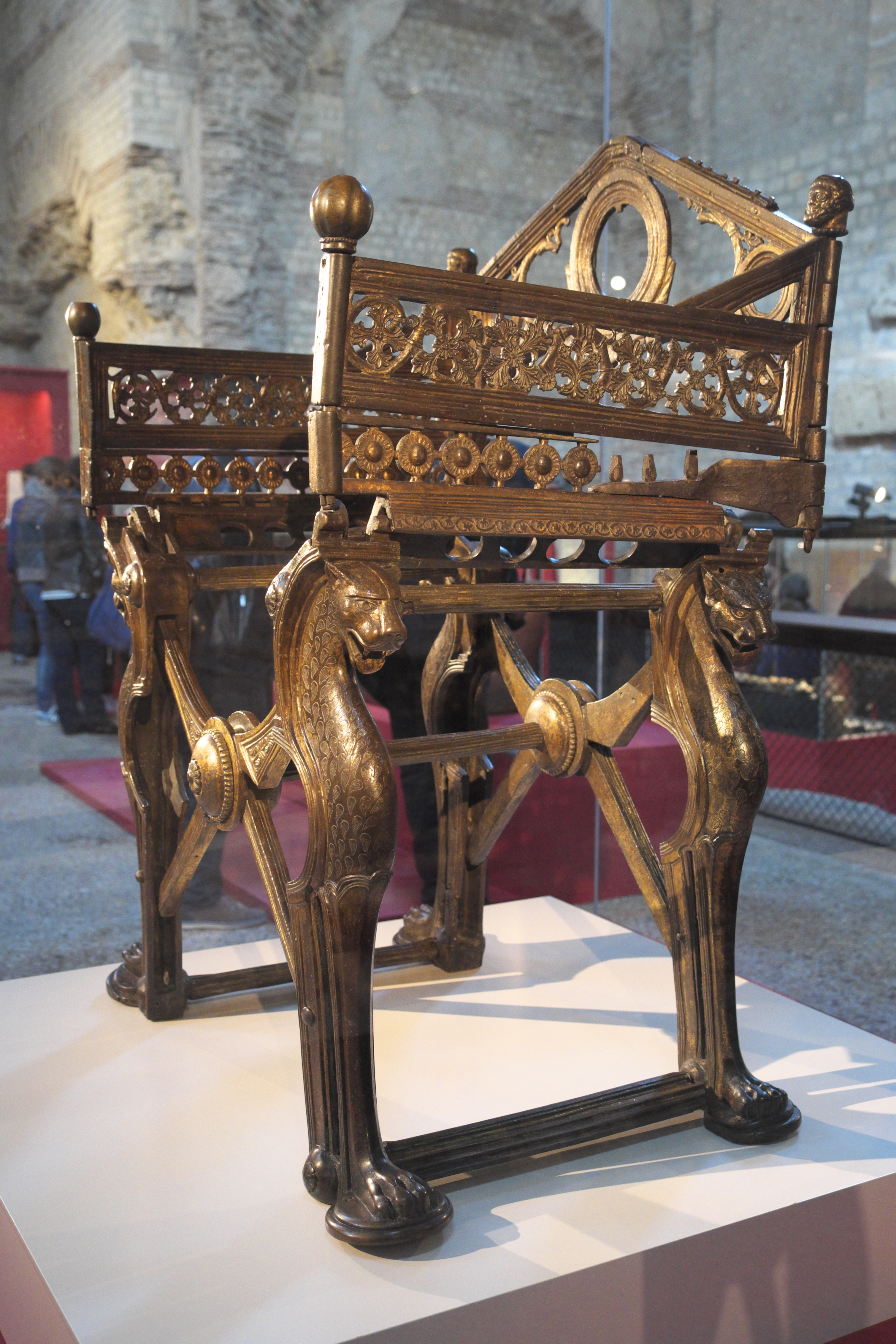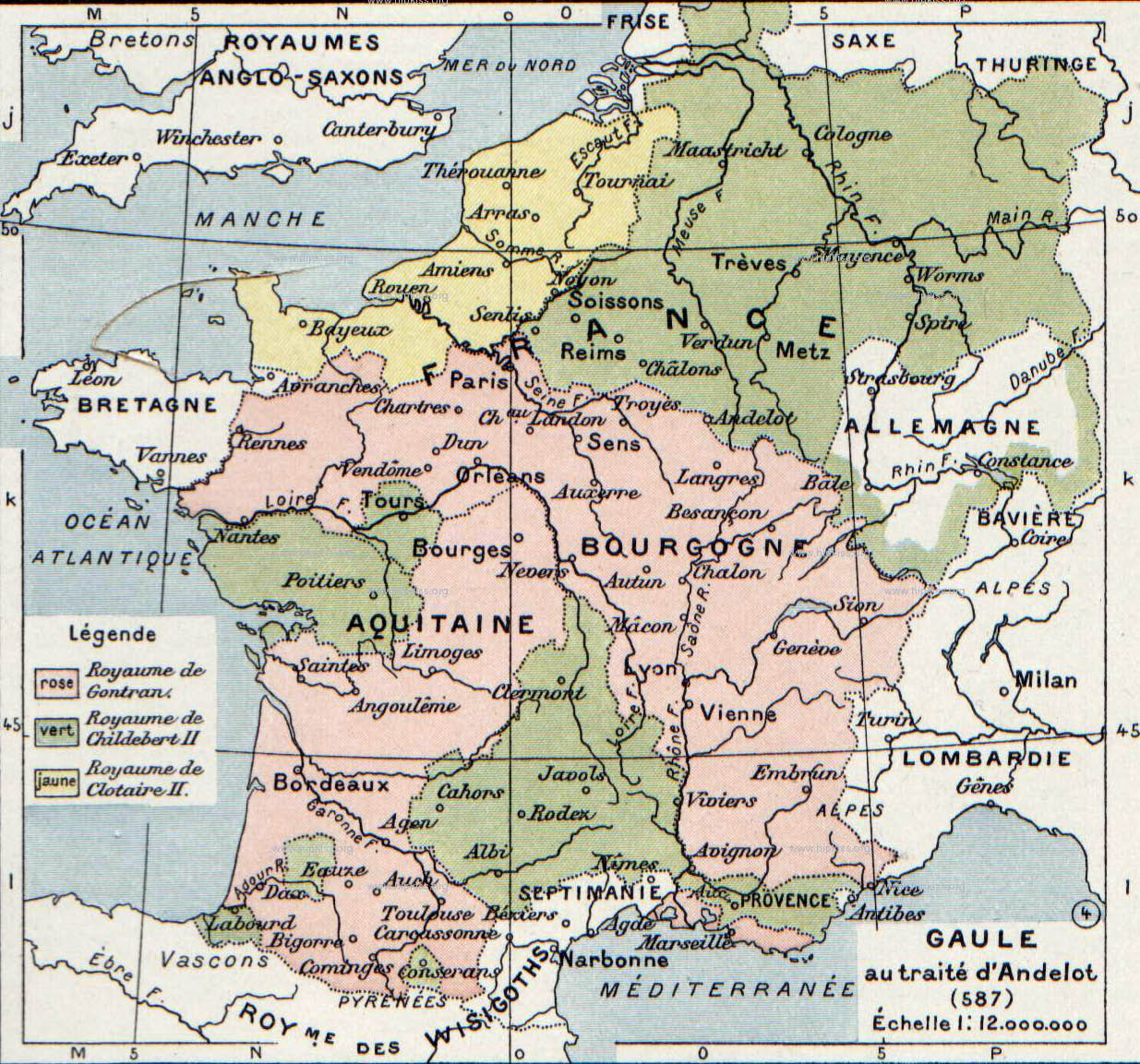|
Sichilde
Sichilde (ca. 590–627) was a Frankish queen consort in 618–627; married to Chlothar II. She was the daughter of the Count Brunulphe II of the Ardennes and the sister of Gomentrude (598–630), who was married to Dagobert I Dagobert I ( la, Dagobertus; 605/603 – 19 January 639 AD) was the king of Austrasia (623–634), king of all the Franks (629–634), and king of Neustria and Burgundy (629–639). He has been described as the last king of the Merovingian dyna ...; her maternal grandfather was royal '' maior domus''. She married Chlothar in about 618. In 626 or 627, she was suspected of having had a relationship with Boso, son of Audolène of Étampes, and Boso was killed by the duke Arnebert on the order of Chlothar. References Frankish queens consort 7th-century Frankish women 7th-century Frankish nobility {{France-noble-stub ... [...More Info...] [...Related Items...] OR: [Wikipedia] [Google] [Baidu] |
Gomentrude
Gomentrude (598 – fl. 630), also Gomatrude, Gométrude, or Gomatrudis, was a Frankish queen consort by marriage to king Dagobert I. It is possible that Gomentrude was descended from Ragnacaire, king of the Franks in Cambrai, through his son Magnachaire, Duke of the Franks. She was the younger sister of queen Sichilde, third wife of King Clotaire II. Their brother was likely lord Brodulf (assuming Sichilde is the mother of Charibert II), who tried to defend the rights of his nephew on the kingdom of Aquitaine against the ambitions of Dagobert I. The marriage was arranged against the will of Dagobert in 625. When he became king in 629, he repudiated her one year after his succession, officially because of her claimed infertility. In 625, Clotaire married her to his own son, Dagobert, who was already king of Austrasia . The ceremony took place in Clichy, at the palace of Reuilly (Romiliacum), or at the royal villa of Clippiacum located in the current commune of Saint-O ... [...More Info...] [...Related Items...] OR: [Wikipedia] [Google] [Baidu] |
Dagobert I
Dagobert I ( la, Dagobertus; 605/603 – 19 January 639 AD) was the king of Austrasia (623–634), king of all the Franks (629–634), and king of Neustria and Burgundy (629–639). He has been described as the last king of the Merovingian dynasty to wield any real royal power. Dagobert was the first of the Frankish kings to be buried in the royal tombs at Saint Denis Basilica. Rule in Austrasia Dagobert was the eldest son of Chlothar II and Haldetrude (575–604) and the grandson of Fredegund. Chlothar had reigned alone over all the Franks since 613. In 622, Chlothar made Dagobert king of Austrasia, almost certainly to bind the Austrasian nobility to the ruling Franks. As a child, Dagobert lived under the care of the Carolingian dynasty forebears and Austrasian magnates, Arnulf of Metz and Pepin of Landen. Chlothar attempted to manage the unstable alliances he had with other noble families throughout much of Dagobert's reign. When Chlothar granted Austrasia to Dagobert, he ... [...More Info...] [...Related Items...] OR: [Wikipedia] [Google] [Baidu] |
Chlothar II
Chlothar II, sometime called "the Young" (French language, French: le Jeune), (May/June 584 – 18 October 629), was king of Neustria and king of the Franks, and the son of Chilperic I and his third wife, Fredegund. He started his reign as an infant under the regency of his mother, who was in an uneasy alliance with Chlothar's uncle King Guntram of Burgundy, who died in 592. Chlothar took power upon the death of his mother in 597; though rich, Neustria was one of the smallest portions of Francia. He continued his mother's feud with Queen Brunhilda of Austrasia, Brunhilda with equal viciousness and bloodshed, finally achieving her execution in an especially brutal manner in 613, after winning the battle that enabled Chlothar to unite Francia under his rule. Like his father, he built up his territories by seizing lands after the deaths of other kings. His reign was long by contemporary standards, but saw the continuing erosion of royal power to the French nobility and the church ... [...More Info...] [...Related Items...] OR: [Wikipedia] [Google] [Baidu] |
Christian Bouyer
Christians () are people who follow or adhere to Christianity, a monotheistic Abrahamic religion based on the life and teachings of Jesus Christ. The words ''Christ'' and ''Christian'' derive from the Koine Greek title ''Christós'' (Χριστός), a translation of the Biblical Hebrew term ''mashiach'' (מָשִׁיחַ) (usually rendered as ''messiah'' in English). While there are diverse interpretations of Christianity which sometimes conflict, they are united in believing that Jesus has a unique significance. The term ''Christian'' used as an adjective is descriptive of anything associated with Christianity or Christian churches, or in a proverbial sense "all that is noble, and good, and Christ-like." It does not have a meaning of 'of Christ' or 'related or pertaining to Christ'. According to a 2011 Pew Research Center survey, there were 2.2 billion Christians around the world in 2010, up from about 600 million in 1910. Today, about 37% of all Christians live in the Ameri ... [...More Info...] [...Related Items...] OR: [Wikipedia] [Google] [Baidu] |
Ardennes
The Ardennes (french: Ardenne ; nl, Ardennen ; german: Ardennen; wa, Årdene ; lb, Ardennen ), also known as the Ardennes Forest or Forest of Ardennes, is a region of extensive forests, rough terrain, rolling hills and ridges primarily in Belgium and Luxembourg, extending into Germany and France. Geologically, the range is a western extension of the Eifel; both were raised during the Givetian age of the Devonian (382.7 to 387.7 million years ago), as were several other named ranges of the same greater range. The Ardennes proper stretches well into Germany and France (lending its name to the Ardennes department and the former Champagne-Ardenne region) and geologically into the Eifel (the eastern extension of the Ardennes Forest into Bitburg-Prüm, Germany); most of it is in the southeast of Wallonia, the southern and more rural part of Belgium (away from the coastal plain but encompassing more than half of the country's total area). The eastern part of the Ardennes forms the ... [...More Info...] [...Related Items...] OR: [Wikipedia] [Google] [Baidu] |
Frankish Queens Consort
Frankish may refer to: * Franks, a Germanic tribe and their culture ** Frankish language or its modern descendants, Franconian languages * Francia, a post-Roman state in France and Germany * East Francia, the successor state to Francia in Germany * West Francia, the successor state to Francia in France * Crusaders * Levantines (Latin Christians) See also * Name of the Franks * Franks (other) * Franconian (other) Franconian may refer to: *anything related to Franconia (German ''Franken''), a historic region in Germany, now part of Bavaria, Thuringia and Baden-Württemberg * East Franconian German, a dialect spoken in Franconia *Franconian languages *Francon ... {{disambiguation Language and nationality disambiguation pages ... [...More Info...] [...Related Items...] OR: [Wikipedia] [Google] [Baidu] |
7th-century Frankish Women
The 7th century is the period from 601 ( DCI) through 700 ( DCC) in accordance with the Julian calendar in the Common Era. The spread of Islam and the Muslim conquests began with the unification of Arabia by Muhammad starting in 622. After Muhammad's death in 632, Islam expanded beyond the Arabian Peninsula under the Rashidun Caliphate (632–661) and the Umayyad Caliphate (661–750). The Muslim conquest of Persia in the 7th century led to the downfall of the Sasanian Empire. Also conquered during the 7th century were Syria, Palestine, Armenia, Egypt, and North Africa. The Byzantine Empire suffered setbacks during the rapid expansion of the Caliphate, a mass incursion of Slavs in the Balkans which reduced its territorial limits. The decisive victory at the Siege of Constantinople in the 670s led the empire to retain Asia Minor which assured the existence of the empire. In the Iberian Peninsula, the 7th century was known as the ''Siglo de Concilios'' (century of councils) refe ... [...More Info...] [...Related Items...] OR: [Wikipedia] [Google] [Baidu] |




